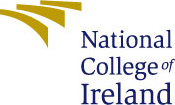Dr Leo Casey, Director of Learning and Teaching at National College of Ireland.
More than ever we need skilled trainers for the future but we also need new specialists with broader skills in workforce learning and development. At National College of Ireland we have developed new and exciting programmes to meet this challenge and to produce new educators for our new economy. (Read about our new BA Honours in Adult and Workforce Education or BA Honours in Early Childhood Education).
Workplace training is directed at getting people to perform predefined tasks to a required standard. This is the case for the call centre agent responding to a query, the barista preparing a cappuccino, the machinist on the shop floor, or the entire workforce in a building during a fire drill. Workplaces require people to perform their jobs consistently, effectively, ethically and safely. Everyone needs training no matter what their level in the organisation or what stage they are at in their career. In my role as an academic concerned with learning and teaching I need regular training on how to use the latest IT systems, or on changes to child protection policy or simply, but importantly, on the best way to leave the building during an emergency.
We will always need good training. So long as we engage in organised, purposeful tasks we will need to set aside time and resources to train participants in ‘what needs to be done’. The appropriate paradigms for this form of learning are association, repetition and feedback. Over the years trainers have managed to ‘crack the instructional code’ and, often with the aid of technology, training programmes are successfully preparing people to reliably accomplish the tasks required to fulfil their role.
However, as the complexity of a task increases the degree of predictability diminishes and it is not possible to predefine the ‘correct’ response for every situation that may arise. These more complex situations are the rule rather than the exception for jobs in the so-called ‘new economy’. Employers are now looking for flexible, problem solving, creative and collaborative competences that cannot be predefined and are learned in different ways. For these kinds of skills and abilities, the training paradigm is not fit for purpose and we need to move our thinking to embrace the altogether broader and more useful tenants of ‘adult and workforce development’.
Adult and workforce education differs from training in three important ways first, there is a more fundamental emphasis on the person (rather than the task) as the starting point for building new knowledge and skills, second, creative differences in accomplishing tasks are embraced rather than discouraged and third, notions of teamwork, collaboration, scaffolding and learning in ‘community of practice’ are favoured over self-advancement, competition and individualism.
Our new programmes are intended to address the needs of future leaders in learning and we can now cater for a wide range of entry levels from pre-degree to post-graduate. If you wish to be an educator of others you need to start by understanding yourself as a learner. Our natural tendencies to be curious, to harness experience, to create and to communicate with others, underpin the development of our talent and abilities throughout our lives. It is a special challenge and privilege to nurture and oversee other people develop their skills and competence. It is not an overstatement to suggest that successful workforce development and education are critical factors to the success of an organisation or indeed an economy. Our intent is to provide professional pathways for the key people who will bring this about.
Thinking of returning to education? National College of Ireland welcomes adults from all walks of life, who are curious about how to turn their life experiences and learning into a recognised qualification. We have developed a series of courses in education that help adults to realise how they can develop themselves and those around them. Join us for a cuppa to learn more.
Read more from Leo here on the importance of experiential learning.
Questions? Feedback? Leave us a comment below.












